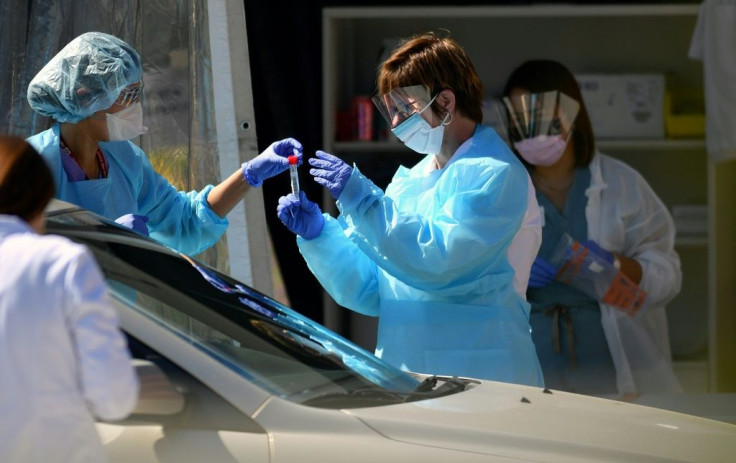Coronavirus Update: Vaccine Skips Important Animal Testing Phase, Straight To Human Trials

KEY POINTS
- Human trials on the new COVID-19 vaccine began March 16 in the U.S.
- The human trials began even as animal trials are underway
- This unorthodox approach, which might compromise both the safety and efficacy of the new vaccine, is being questioned by biomedical ethicists
It's a risky gamble that will save thousands of lives if it pans out but might risk the health of its brave volunteers if it doesn't. The gamble also doesn't seem to conform to accepted medical ethics.
The urgent need to get into production a vaccine against the severe acute respiratory syndrome coronavirus 2 (SARS-CoV-2) that causes COVID-19 has convinced doctors to proceed to human trials of this candidate vaccine without first completing animal trials, as is the usual procedure in multi-step clinical trials.
The candidate COVID-19 vaccine is codenamed mRNA-1273. It was developed in record time by Moderna Inc., a biotechnology firm based in Massachusetts using DNA technology. Doctors said volunteers aren't at risk from the new vaccine since it doesn't contain SARS-CoV-2, which a conventional vaccine might include.
Standard clinical trials of any new medicine require scientists first test the vaccine on animals (normally mice) to determine its safety and effectiveness. Only after surviving iterative tests in animal models can a candidate medicine then be tested in human trials. This step has been dispensed with in the case of mRNA-1273.
Reports said virologists at the National Institute of Allergy and Infectious Diseases INIAID) did give the experimental vaccine to lab mice. These mice showed a similar immune response to mice given an experimental vaccine for MERS-CoV, a related coronavirus, Barney Graham, director of NIAID’s vaccine research center, told STAT news. The problem, however, is standard lab mice isn't susceptible to SARS-CoV-2 as humans, which leaves open the efficacy question.
Preliminary animal experiments are ongoing and if they appear harmful or don't prevent infection, the clinical trial on humans will be halted, said Karen Maschke, a scholar in bioethics at the Hastings Center and the editor of the journal Ethics & Human Research.
"You don't burden people to be in a study if the intervention is not going to help," said Maschke.
She also said animal studies aren't always reliable indicators of how a drug will work in people.
On Monday, the Kaiser Permanente Washington Research Institute in Seattle said it had given a volunteer the first dose of an experimental coronavirus vaccine. More than 45 volunteers will be given two doses of the new vaccine. The vaccinations will be given a month apart.
“We’re team coronavirus now,” said Dr. Lisa Jackson, a senior investigator working on the study. “Everybody wants to do what they can in this emergency.”
However, biomedical ethicists are alarmed at this glaring shortcut that does away with much of the safety measures built into clinical trials.
“There’s a few reasons to think that this is something that we shouldn’t be doing,” said Nicholas Evans, an assistant professor in the Department of Philosophy at the University of Massachusetts Lowell, according to The New Republic.
He said this trial isn't just doing away with a significant safety step, it's also skipping the important step of learning, through the animal trial, if the vaccine will be useful at all.
“So this is a pretty big deal," he said.
Animal trials almost always precede human trials but Moderna managed to convince the U.S. Food and Drug Administration (FDA) to give the green light for conducting human trials while animal tests are still ongoing. The animal trials began at the same time as the human trial began recruiting participants back in March.
© Copyright IBTimes 2024. All rights reserved.





















